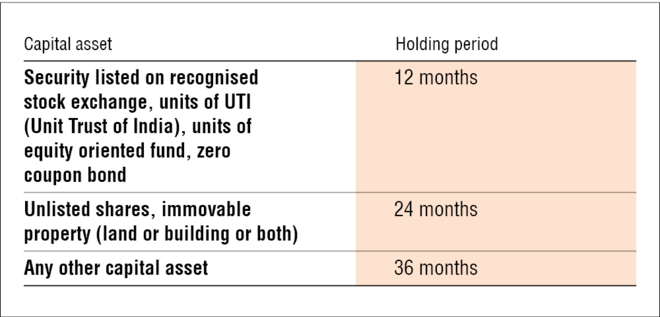
I want to buy a listed cumulative NCD (non-convertible debentures) of a three year term of a finance company after 18 months of its issue from the market and want to hold it for the balance period. Will I have to pay tax difference of maturity amount and purchase cost at the time of maturity as long term capital gain? - Anonymous
The Income Tax Act, 1961, defines a long term capital asset as a capital asset which is not a short term capital asset. So, now we need to know what constitutes a short term capital asset. A short term capital asset is a capital asset which is held for not more than 36 months. That means, capital assets that are held for more than 36 months are termed as long term capital assets.
There are certain exceptions to it where the holding period is different.
Now, since the asset in question here (cumulative non-convertible debentures) is a listed security, the applicable holding period is 12 months for classifying as a long term capital asset.
In this case, the asset (cumulative NCDs) would classify as a long term capital asset as the plan to hold it is till its maturity, i.e., for 18 months, The gains on such assets would be taxed at the rate of 10 per cent. The benefit of indexation does not apply to such securities.
The capital gains would be the difference between the sale value (maturity value if held till maturity) and purchase price adjusted for expenses related to transfer of the asset, such as any brokerages paid, etc.
Suggested read: Is tax harvesting a good idea?









